Back in the day, when I was young and hip, I sometimes went to parties. Now, I know what you’re thinking. Noam, you’re still young and hip! Oh, not what you were thinking? Weird. Anyway, my favorite thing to do at said parties was to find a fellow history nerd and get into a deep discussion. Because history nerds are always up to debate the questions that I care about. Like, what if Israel hadn’t won in 1948? Or, how should we grapple with Jewish power? Or, what’s the relationship between history and myth?
Side note: it’s weird no one invites me to parties anymore. But don’t feel bad for me. I took matters into my own hands and started a podcast where I could sit and talk about these things to my heart’s content. And as Israel approaches its 75th birthday (that’s when this is being recorded), I’ve been thinking a lot about how we got here. About all of the people who dedicated their lives to a country that didn’t yet exist. Who died before 1948 for the sake of an idea, for the faintest glimmer of hope that someday, the Jewish people would rebuild their ancestral homeland.
But though these people never got to be Israeli, all of them helped to create the Israeli identity. Because an identity, like a state, doesn’t just emerge fully-formed, like Athena from Zeus’ forehead. (Shoutout to my Greek mythology nerds – you’re my second favorite people to talk to at parties!) Anyway, Israeli identity – like Israel itself – was constructed, piece by piece, well before 1948. Before the struggle with the British, before the Arab-Israeli conflict, there was already an active Zionist community in the Holy Land, people working to create a state they’d never see.
Today, I share their stories with you, in three incredible chapters. We’ll start with a prologue:
Prologue: The lamps are out in Europe
There are a lot of cool things about being Jewish. Like the fact that we still exist, despite history’s many attempts to erase us. Or the fact that we popularized both monotheism and matzo balls… and sabich… and malawach [Yemenite Jewish pancakes]… What was I saying? Oh, yeah: for all the great things about Judaism, you gotta admit: it’s tough to be a tiny, stateless minority during a world war.
We don’t talk a whole lot about World War I on this podcast. Understandably, it tends to get eclipsed by its bloodier younger sibling, AKA World War II, but that’s kind of unfair, because before World War II, World War I was called the Great War. It was the big deal. Kind of like how Ramon Martinez felt when everyone started talking about his little brother, Pedro. (Yes, my baseball references stop at 1998, I got nothing after that.) But I’d argue that modern Israeli identity began to crystallize and solidify during World War I – even though there was no Israel!
Let me explain. World War I shook up the entire world. On one side, you had the Central Powers: Germany, Turkey, and Austria-Hungary. Three empires, controlling a ridiculous amount of territory. On the other side were the Entente Powers, aka the Allies, and yes, it’s confusing that they were called the same thing during World War I and World War II, even though the countries don’t all line up. These were France, Great Britain, Russia, Italy, Japan, and, toward the end of the war, the United States.
Now, we know how the war ends. The Central Powers lose. Their empires crumble. The stage is set for the next world war. But back in the summer of 1914, no one knew what was going to happen. And so the global Jewish community — including the Yishuv, the Jewish community of pre-state Palestine — had a tough decision to make. Who do you fight for, if you’re a tiny stateless minority dispersed all over the world?
Not to mention that Palestine was under Ottoman control. But the Ottoman Empire was dying, and the Zionist community was asking itself: would the war finally finish off the crumbling empire, which was rocking it out since 1299? Or would the Ottomans somehow pull off a miracle and restore their former glory?
This is the calculus of the stateless and the dispossessed. Who do you root for, when your hope for a homeland hinges on the whims of greater powers?
Well, depends who you ask.
Chapter 1: Of Mules and Men
Vladimir Ze’ev Jabotinsky was a man of strong opinions.
I mean, of course. The man founded Revisionism – a muscular Zionism that advocated for the creation of a Jewish homeland on both sides of the Jordan. His youth movement, Betar, continues to empower young Jews all over the world. And he inspired some of Israel’s most legendary figures, like future Israeli Prime Minister Menachem Begin.
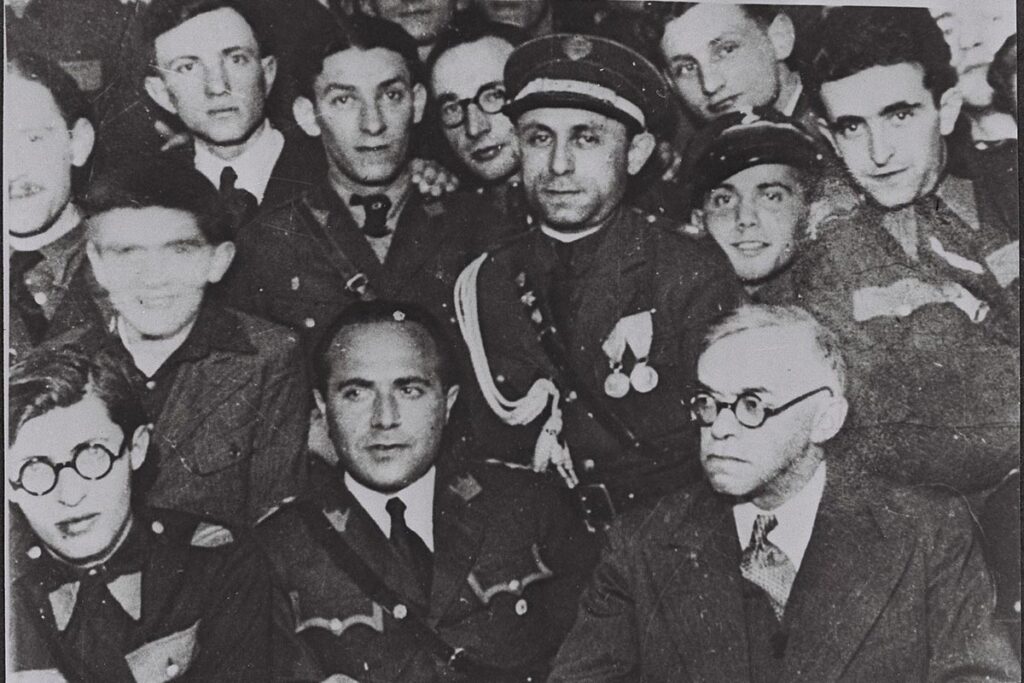
So it should surprise no one that Jabotinsky’s strong opinions also extended to who the Yishuv should back during World War I. Spoiler: it was not the Ottomans. In fact, Jabotinsky strongly believed that the Yishuv had to liberate “Eretz Israel from Turkish rule… as a Jewish military unit.”
That’s right. Jabotinsky didn’t just support the British. He wanted to fight with them. But not everyone agreed with his assessment that backing the British was the only way to go.
Future Prime Minister David Ben Gurion – another man with strong opinions – was all-in on the Ottomans. As a law student in Constantinople, now Istanbul, Ben Gurion’s goal was simple: mobilize all the Jews in the Ottoman Empire into a unified bloc with a voice in the Turkish Parliament, then use that voice to campaign for a Jewish home in Palestine. So when young Ben Gurion came home to Palestine during the summer break of 1914, he did so with the intention of raising a Jewish militia to fight in support of the Ottomans. Best of all, he arrived in Palestine decked out in a Turkish-style suit, complete with a fez and a luxuriant mustache, as though to profess his loyalty to the Ottomans.
Now, I don’t know if Jabotinsky was the kind of guy who’d say Told ya so. But honestly, he would have been justified. Because as soon as they entered the war in October of 1914, the Ottomans started acting like jerks. And by “the Ottomans,” I really mean one Ottoman leader in particular: Cemal Paşa, commander of the Fourth Army and one-third of the so-called triumvirate that jointly led the Ottoman Empire during World War I.
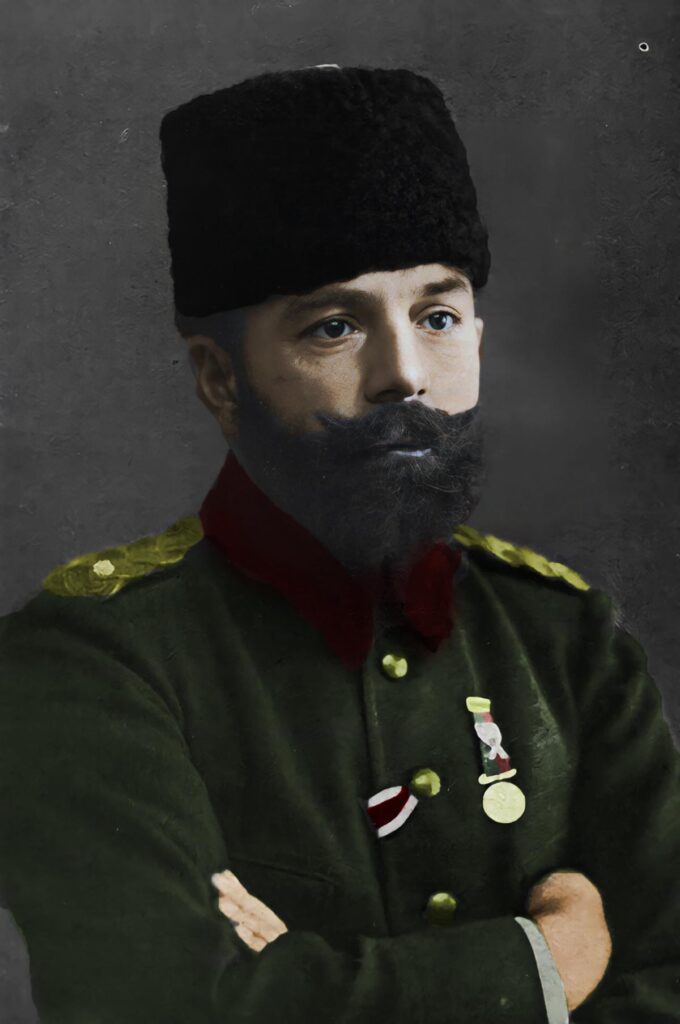
Now, I’m sure Paşa’s family liked him, and maybe he was really kind to his mom. But if there’s one thing that Arab nationalists, Zionists, and Armenians can agree on, it’s that the guy was a real piece of work. Because Paşa really, really disliked challenges — real or imagined — to Ottoman authority. And as one of the most powerful men in the Ottoman government, he had the ability to do something about it.
Like executing so many nationalist Arab leaders that his nickname in Damascus was al-Saffah. The Blood Shedder. Or heavily persecuting the Armenian people – if not actively participating in the genocide. So it shouldn’t be a surprise that he was no friend to the Zionists either. Not even ones who wanted to be friends with him, like Ben-Gurion.
Paşa disbanded Ben-Gurion’s Ottoman-allied Jewish defense organization, shut down the Zionist newspaper, and declared that every Zionist was an enemy of Turkey and deserving of death. By early 1915, 18,000 Jews were either expelled or fled to Egypt to escape Paşa and the Ottomans’ constant persecution. He also scattered prominent Zionist leaders, including Ben Gurion, among different cities in what is today Turkey. I guess he thought he was ridding Palestine of “undesirable” nationalists, cutting the Zionist movement off at the head.
But that was a huge mistake. Turns out when you kick 18,000 people out of their homes, they’re probably not going to like it. That goes double if you expel them during wartime and mistreat their families back home. In fact, one or two might even get together, approach your enemy, and volunteer their services in the war against you.
Instead of dispersing the Jews, in the end, Paşa unwittingly created the first Jewish army in nearly 1,800 years. Oops.
Now, back to Jabotinsky – who, remember, did not trust the Ottomans. There are different accounts of how Jabotinsky wound up in Egypt in 1915. Some claim he was there as a journalist, covering the war. Others say he was among those deported by Paşa. Honestly, it doesn’t matter why he was there, only that he was. Because it was in Egypt that the fiery journalist met the coolest guy you might not know so much about or maybe even ever heard of: Yosef Trumpeldor.

Where do I even start describing this guy?
By birth, he was Russian.
By heritage, he was a Jew.
By profession, he was a soldier – a highly-decorated veteran of the Russo-Japanese War and the second Jew ever to be appointed as an officer in the Russian army.
But in his soul, he was a Zionist. And a freakin’ legend.
Let me be clear. Trumpeldor wasn’t the kind of guy who sat around thinking “gosh, I sure wish there were a Jewish state.” No, he was the kind of guy who established a thriving Zionist group while held hostage in a Japanese POW camp. All of the Russian-Jewish soldiers in the camp were welcome to join. There must have been a bunch of takers, because Trumpeldor’s group ran a school, library, theater troupe, and weekly Hebrew and Yiddish-language newsletter. In a Japanese POW camp! In the early 1900s!
Oh, and he did all this with one arm.
But Trumpeldor wasn’t going to let something as silly as an amputated limb get him down. “I still have another arm to give,” he reportedly shrugged. (And, by the way, on top of all his other talents, the man was also ridiculously handsome. We’ve linked a picture in the show notes.) In short: he had all the makings of a Zionist hero.
He and Jabotinsky bonded immediately. Within a matter of days, they’d gathered several prominent members of the Jewish community to vote on whether they should offer their services to the British. The answer was yes. Two weeks later, Jabotinsky met with the British commander in Egypt, to see if he’d be open to establishing a Jewish unit. And though the British had a rule against allowing foreigners to fight, they were able to accept a small volunteer force to transport weapons and supplies on muleback.
Now, some of the prospective fighters were pretty insulted by this. They wanted to fight for Eretz Yisrael, not to act as glorified schleppers! But Trumpeldor shut it down. “We’ve got to smash the Turk,” he said. “Any front leads to Zion.” The speech worked. By the end of March, more than 500 had volunteered, and the Zion Mule Corps was going to war.
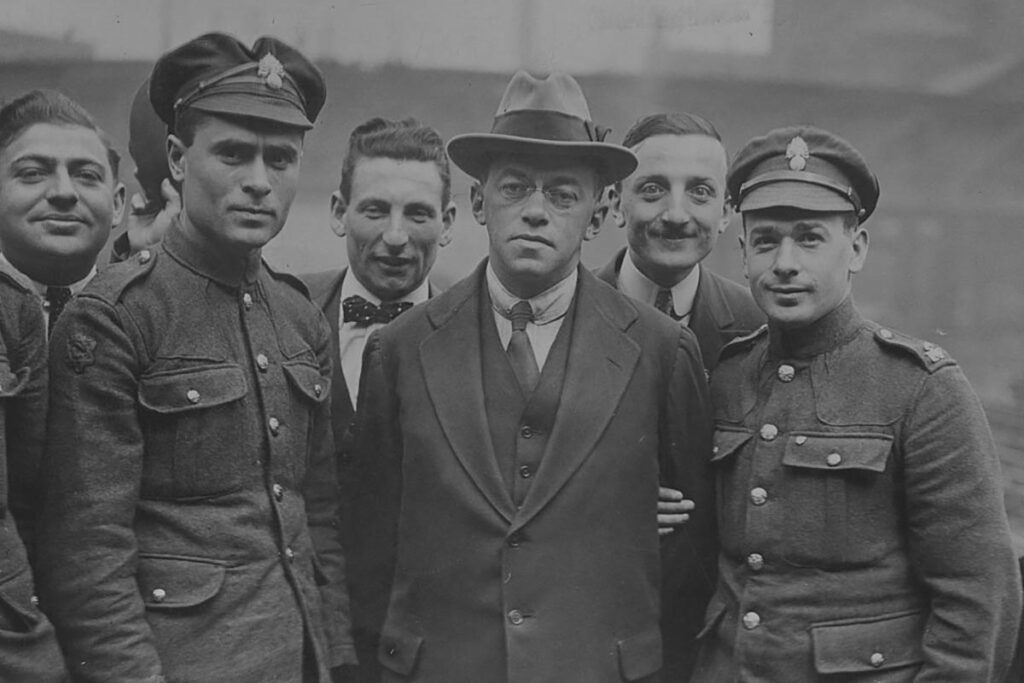
It didn’t matter that the Mule Corps weren’t technically fighters, or that they were a part of another nation’s army. Because for the first time since the Bar Kokhba rebellion in the second century CE (which is its own amazing story that you need to read about), Jewish soldiers gathered under a Jewish flag in the name of a Jewish cause. Jews wore military badges emblazoned with the Star of David and took orders in Hebrew and sang Hatikvah as they left for the front. And for the first time in 1800 years, Jews reminded the world that they were still the sons and daughters of Maccabees.
From April 1915 to January 1916, the Zion Mule Corps assisted the Allied forces’ attempt to invade Turkey. And though the campaign failed, the Corps established a reputation for bravery, even heroism. One British officer commented that quote, “These brave lads … most competently unloaded the boats and handled the mules whilst shells were bursting in close proximity to them … nor were they in any way discouraged… walking over dead bodies while the bullets flew around them.” Okay, that was the most ridiculous British accent of all time, but nothing I can do about it.
Yosef Trumpeldor was shot in the shoulder, a wound he – predictably – shrugged off.
The Zion Mule Corps was disbanded in 1916, but the Corps’ legacy survives to this day. Because amid bullets and explosions and the braying of mules, Jewish soldiers proved to the world – and themselves – that they’d face death a thousand times over, if it got them one inch closer to a homeland, to self-determination. It was the same spirit that would animate the Jewish Legion, the Haganah, the Irgun, the IDF, the Mossad.
The first seedlings of an Israeli identity had begun to take root. Pioneering was happening.
Chapter 2: The Hill of Life
Now, you’d think that once World War I ended in 1918, everything would be hunky-dory. The entire world just fought a war! What else could they possibly have to fight about?!
Well, turns out, quite a bit.
As you might remember from our episode on Sykes-Picot, Britain and France spent the first part of the war scheming about what they’d do with all the territory they’d gain, once they vanquished the Ottoman empire. I know, chutzpah. But Britain and France were powerful empires. So they secretly divided up Ottoman land between themselves, shook hands, and called it a day.
Thing is, Britain was two-timing France. Or maybe three-timing. Because they were also making promises to the Zionists and to local Arab leaders, promising them land for future independent states. Britain, you’re a mess.
Now, to be clear, Britain wasn’t making promises out of the goodness of their hearts. They needed help to fight the Ottomans. And they knew just what to dangle in front of the Zionists and the Arab nationalists who fought on their side.
But then the war ended. And so France and the Arab nationalists came to collect. And they were not joking around. Because in late 1918, an Arab leader named Faisal bin al-Hussein bin Ali al-Hashemi declared himself king of Syria – which just so happened to be territory that, according to the Sykes-Picot agreement, now belonged to France. Britain, recognizing that it done goofed, ceded the territory to France in 1919 and set up Faisal with a kingdom in Iraq instead. (Check out our Farhud episode for more on that.)
So let’s take stock. World War I is over. France has taken over Syria, Lebanon, and parts of what is today northern Israel, and local Arabs are pretty ticked off about it. Caught in the middle are a few small Jewish communities who are incredibly annoyed to be under French control. See, the Yishuv ultimately wanted self-determination. But they were also practical. They knew that the British were far more sympathetic to the Zionist cause than the French. The more land the French controlled, the less land the Zionists would get for their eventual state. Simple, right?
The Yishuv debated furiously about what to do with the communities that had now fallen under French control. Did they just leave, under the assumption that they’d get kicked out eventually? Or did they hang on and refuse to go down without a fight?
I bet you can guess the answer.
Among these Jewish communities was a tiny kibbutz called Tel Hai. In Hebrew, the name translates to “the Hill of Life” – a convenient Hebraization of the settlement’s Arab name, Talha. Now, despite the fact that they didn’t love the French, the people of Tel Hai did their best to stay neutral. But because many of them were European immigrants, local Arabs, ironically, suspected them of collaborating with France. And here’s the thing you have to understand: the region was basically a wild west. Chaos, banditry, raids, and skirmishes were common.
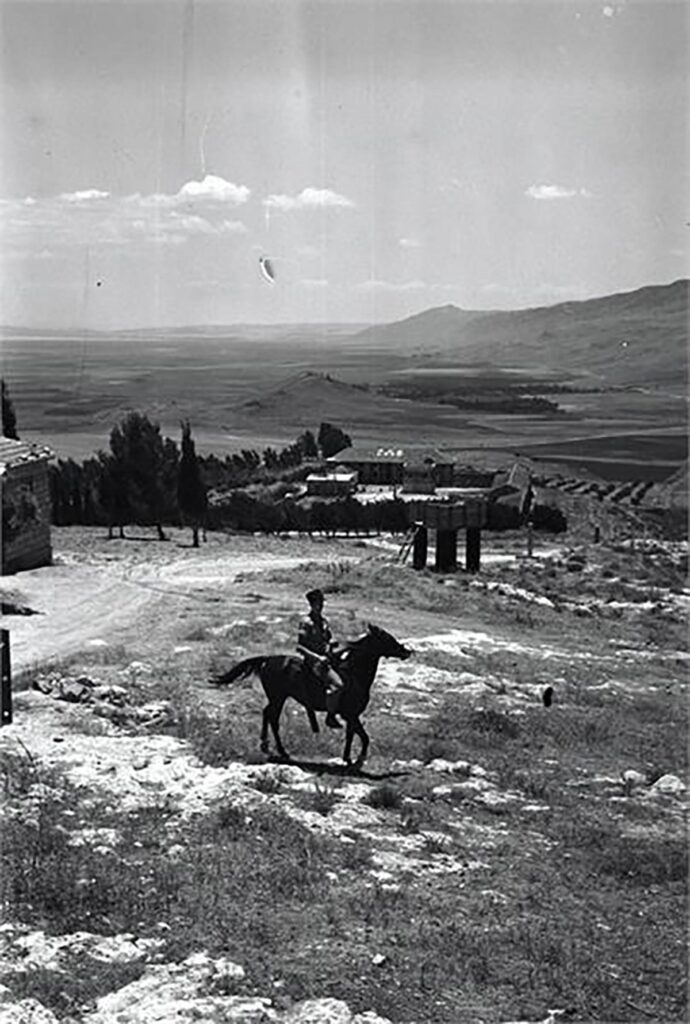
As the neighborhood grew increasingly dangerous, local Jewish settlements organized a defense. And they brought in the best in the biz: that’s right, one-armed war hero Yosef Trumpeldor. And by March 1920, a team of Trumpeldor’s friends, mostly fellow Jewish WWI vets, had joined him at Tel Hai, ready to defend it. Among them was Devorah Drechler, who had emigrated to Palestine in 1913 and begun making waves almost immediately, demanding to be part of the self-defense organization of the Yishuv. And while the defense organizations weren’t super inclined to include women, the truth was that they needed all the help they could get. Eventually, Devorah wore them down. They sent her to Tel Hai just in time for its final showdown.
No one is 100% certain how the battle started. But we know this. On March 1, 1920, between 100-200 Arabs, under the command of local Bedouin leader Kamal al-Hussein, massed outside of Tel Hai’s gates, convinced the kibbutz was hiding French soldiers. This wasn’t a totally ludicrous claim. Remember, the Jewish communities in the Galilee were doing their best to stay neutral. If Arab or French soldiers knocked on their doors looking for shelter, the kibbutz did generally agree.
There were no French soldiers in the kibbutz that day, so the community let the Arabs in to search the courtyard. But the Jews of Tel Hai knew things could turn messy in an instant. The yard was tense, and every person was armed. Trumpeldor was away, visiting a neighboring kibbutz. But soon after he arrived, everything fell apart.
No one knows who shot first. Some accounts tell you that the Arabs turned their guns on Tel Hai’s Jewish residents. Others say the first shot was simply a misunderstanding. Either way, Tel Hai didn’t stand a chance against the Arab raiders, who were carrying both guns and grenades.
By some accounts, Kamal al-Hussein tried to end the fighting. But it was too late. Eight of Tel Hai’s defenders were killed, including Devorah Drechler – who had fought so hard to defend her home. Trumpeldor took two bullets – one to the arm, the other to the stomach. By the time he was evacuated to a nearby kibbutz with better medical facilities, it was too late. The hero of the Russo-Japanese War, organizer of a Zionist group in a Japanese POW camp, leader of the Zion Mule Corps, and defender of Tel Hai was dead.
But here’s the part I want to focus on. The doctor who evacuated him claimed that Trumpeldor left him with a message. Tov lamut l’ad artzenu. It’s good to die for our country. A Hebrew version of the Roman poet Horace’s line, Dulce et decorum est pro patria mori. Pretty good last words, right? Already, in the days after the battle of Tel Hai, every Zionist in the region was repeating the story.
Because it’s a good story. I mean, how else would you want a brave but doomed last stand to end? But some skeptics claim that this may be too good to be true. That a man shot in the stomach, dying for hours, was a lot more likely to swear in his mother tongue. Is it possible that the doctor misheard a Russian curse and spun it into a noble tale?
Maybe?? Because Trumpeldor – and Drechler, and the other six Jews who died defending Tel Hai – was a hero. But he was also a person. A forty-year-old who should have lived to see the birth of his country. If I were him, I’d be pretty salty about dying without getting to see the end result of all my fighting, you know? And so, my instinct (though this could all be projection) is that his last words were something I can’t say on this family-friendly podcast. But either way, tov lamut l’ad artzenu was the line.
Because the entire generation of young Zionists who came of age before 1948 needed a hero to look up to. And so Zionist leaders made sure that Tel Hai wasn’t just a sad story. Three years after Trumpeldor’s death, his old friend Jabotinsky established a Zionist youth group named Betar, after two Jewish legends. Betar was where Bar Kokhba’s men made their last stand against the Roman empire. But it was also a Hebrew acronym for Brit Yosef Trumpeldor – the covenant of Trumpeldor. A legend that would inspire and empower young Zionists for generations to come. To pioneer, to build!
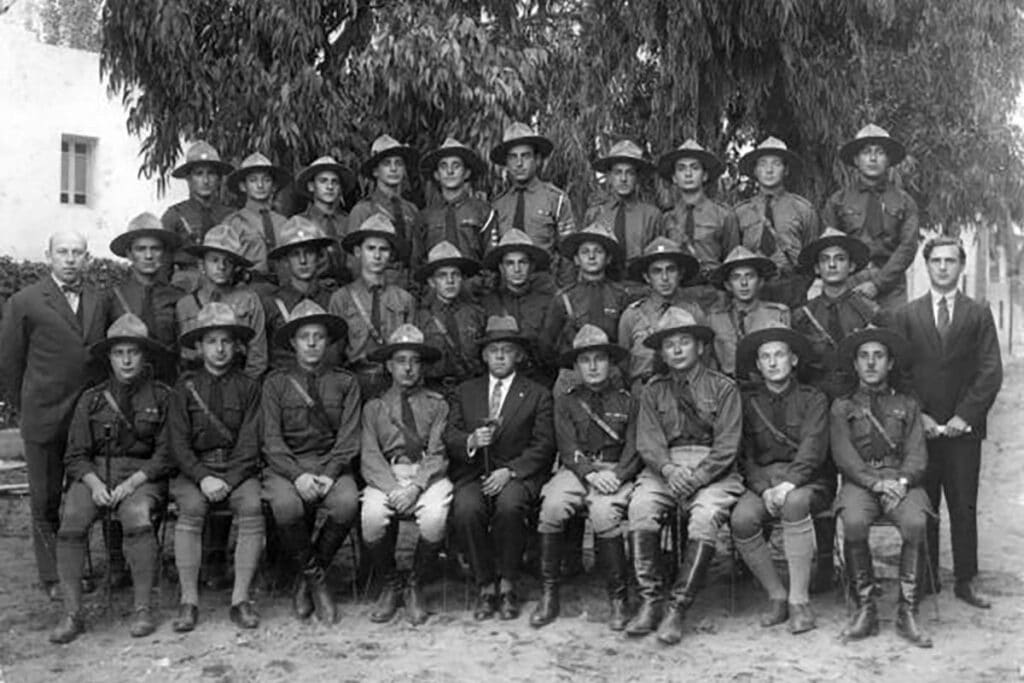
In 1949, Israel established a new community on the site of al-Khalisa, an Arab town whose residents fled during the 1948 war. The Israelis named their new town Qiryat Yosef, Yosef’s Town, after the man who refused to leave the Galilee. A year later, the name was changed to Qiryat Shemoneh, The Town of the Eight, to remember all eight of Tel Hai’s defenders. A Zionist legend embedded into the very landscape.
Because land is central to so much of the Zionist project. Caring for it. Defending it. Refusing to leave it. And that brings me to our final story for today, about a family who used their love and knowledge of the land of Israel to help liberate their homeland from their enemy.
Chapter 3: The Spymaster
You know the expression not all heroes wear capes? Well, not all heroes carry guns. Some heroes are bookish agronomists. (Nerd corner alert: If you’re like me, you’ve never heard this word, but I’ll save you the Google search: Agronomy is the science of soil management and crop production. Seriously, I rock at parties.)
Aaron Aaronsohn – yes, that was his real name – loved two things. The first was the natural world. The second was the land of Israel. He’d come to what was then called Palestine – with his parents as a six-year-old, and by 30, he was the world’s most well-known agronomist. (Which, I realize, is not saying much, maybe there were like 40 of them. But trust me, he was an absolute rock-star in his field.) His profession turned out to be excellent cover for his extra-curricular activity of choice: espionage.
See, Aaronsohn had come of age in a region controlled by a dying empire. Yup, I’m talking about our old friends the Ottomans. And just like Jabotinsky, he was, shall we say, not a fan. So when Cemal Pasa – yup, that Cemal Pasa – approached him for help, Aaronsohn was thrilled.
OK, let me back up, because if you’ve been paying attention, you’re like, wait, where are we? So here’s the deal. As if a world war weren’t enough, in the spring of 1915, Palestine was hit by a plague of locusts. Yes, a literal plague of locusts, Exodus-style. Pasa, keenly aware that the locusts would devastate his army’s food stores if left unchecked, asked Aaronsohn for help controlling the pests. And when I say “asked for help,” I mean “bullied and threatened.” Seriously. His way of approaching Aaronsohn was to ask: “What would you say if I ordered you to be hanged?” What a guy, Cemal Pasa. What a guy. Too bad he’s not around to grab a beer.
But Aaronsohn wasn’t cowed. “The weight of my body would break the tree, and the noise would be heard in America,” he replied. What a boss answer.
Now, I don’t know what Pasa said in response. But the meeting ended with Aaronsohn agreeing to help. Traveling Palestine collecting information under the guise of “helping the Ottomans”? Could there be a better cover story for collecting information on the Ottoman army?! All Aaronsohn needed now was a way to offer his services to the British.
But Aaronsohn didn’t do this alone. He looped in his brother Alexander, his sisters Sarah and Rivka, and his friends Joseph Lishansky and Avshalom Feinberg. Because no story is complete without a love triangle, Avshalom and Sarah are thought to have been romantically involved. But by the start of World War I, Sarah was unhappily married to someone else, and Avshalom was engaged to her sister Rivka.
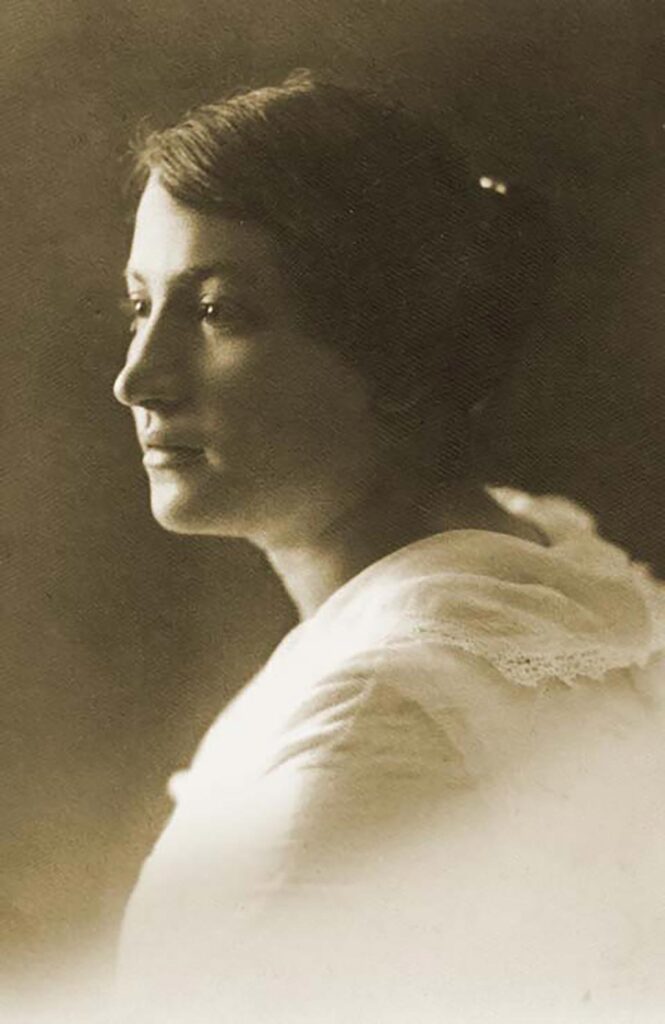
Ok ok, this is not meant to be a soap opera and none of them are here to defend themselves, so let’s move on.
But Sarah’s marriage proved an important catalyst for the nascent spy ring. Because she followed her husband to Istanbul. And it was on her way back to Palestine that she witnessed, firsthand, the Armenian genocide. Now, here’s a quick version of this tragic event: between spring of 1915 and the fall of 1916, the Ottomans deported, persecuted, and massacred hundreds of thousands of Armenian Christians. The justified the genocide by claiming that otherwise, the Armenian community would join the Allies.
Yeah, like I said at the beginning: world wars? Not a great time for tiny, stateless minorities.
Now, for most of the Yishuv, the message of the Armenian genocide was clear: don’t support our enemies, or we’ll kill you. Pasa made the connection explicit, threatening as early as December of 1916 to make “Palestine a second Armenia” if the Zionists continued, you know, Zionism-ing. Obviously, the World Zionist Organization remained neutral in WWI, afraid of ticking off the Ottomans and further endangering the Yishuv.
But Sarah’s experience both traumatized and emboldened her. The atrocities that she witnessed – her account is linked in the show notes – made her even more determined to fight the Ottomans with every method at her disposal. So she joined her brother’s spy ring, NILI – an acronym for “Netzach Yisrael Lo Yeshaker,” or the Eternity of Israel Will Not Lie. In other words: the Jewish people are forever, man. Pretty dope name for a ring of spies.
Now, you might be wondering: what kind of information could an agronomist possibly pass to an imperial army? Well, Aaron suggested a new route for invading Palestine – one that actually worked. Perhaps most importantly, Aaron insisted that the Sinai Desert sat on top of a vast reserve of water. Turns out that he was right, saving the Brits the effort and expense of drawing water in Egypt and transporting it to Palestine via train.
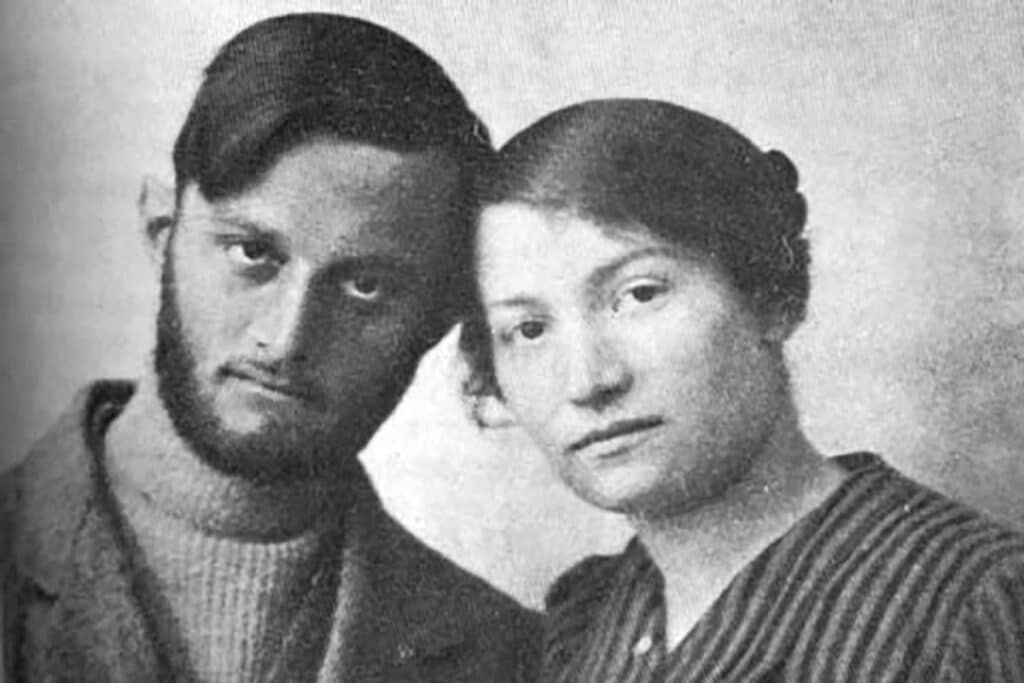
But Aaron wasn’t the only impressive member of NILI. Sarah more or less ran the spy ring, handling its 40 agents, coordinating its activities in Palestine and Lebanon, managing the finances, and decoding and encoding the information that would eventually pass to the Brits via carrier pigeon. She refused to leave Palestine, even after British intelligence warned her that the Ottomans were on her trail.
The Ottomans came for Sarah in the autumn of 1917. But she refused to tell them anything. Even after they tortured her father in front of her. Even after they whipped her body and burned her skin and crushed her fingers. After days of torture, the only thing she had to say to her interrogators was that she had worked alone and that she couldn’t wait to see the downfall of the Ottoman Empire.
But Sarah didn’t live to see the Ottomans’ defeat. Because after four days of torture, they decided to take her to Damascus, where the professionals would make her talk. Terrified she’d break under brutal torture, Sarah asked her captors if she could return home to change her bloodstained clothes. For some reason that I genuinely don’t understand, they said yes. But she didn’t change her clothes. She wrote a note, then slipped her gun out of its hiding place and shot herself in the mouth. But the bullet missed her brain, and she suffered greatly during the last few days of her life.
She left behind an almost mythical legacy. In her suicide note, she asked whoever was reading to “describe all our suffering to those who shall come after we have passed away, and tell them about our martyrdom and let them know that Sarah has asked that each drop of blood be avenged…”
Which is exactly what happened. By 1935, Sarah’s house became a pilgrimage site, and she became known as “Hero of NILI.” And her sacrifice, while messier than Trumpeldor’s, became just as important to the generations of Zionists who came after her. Regardless of what you think about her actions, she pioneered. She built. She cultivated.
So those are your three stories about pre-state Zionism, and here are your five fast facts.
- For the first few decades of the 20th century, Zionist activists and fighters were working to create a homeland they’d never see. Among these figures are Vladimir Jabotinsky, Yosef Trumpeldor, and Sarah Aaronsohn. Though none lived to see the birth of Israel, all are credited with shaping Israeli identity.
- World War I forced the Jewish community of pre-state Palestine to figure out its loyalties. Should they back the Ottomans, who controlled Palestine? Or the Allies, in hopes that Allied forces would be sympathetic to the Zionist cause? Jabotinsky, Trumpeldor, and Aaronsohn were loyal to the Allies from the start, while others, including the WZO and David Ben Gurion, were wary of ticking off the Ottomans.
- The Ottomans’ actions during WWI lost them any loyalty they might have commanded from Palestine’s Jews. Commander Cemal Pasa was a particular enemy, deporting 18,000 Jews from Palestine in hopes of destroying the Zionist cause. Ironically, some of these exiled Jews, led by Trumpeldor and Jabotinsky, banded together and built up the first Jewish army in nearly 1,800 years.
- After World War I, Trumpeldor continued his military career, this time as the leader of a defense league. He died defending the Jewish community of Tel Hai in March of 1920. Legend has it that his last words were: It is good to die for one’s country. In Hebrew, Tov Lamut L’Ad Artzenu. Though it maaay not be true, these dying words became a bedrock of early Zionist mythmaking.
- Meanwhile, Sarah Aaronsohn, horrified and disgusted by the Ottomans’ genocide of the Armenians, formed a spy ring loyal to the British. She was caught by the Ottomans but did not break under torture, committing suicide so that she would not betray the cause. Her sacrifice cemented her as one of Israel’s early heroes.
Those are the facts, but here’s one enduring lesson as I see it.
Whenever I’m giving a talk about Israel education for young people, I like to share this stat. According to a Forbes article from 2013, less than one third of family businesses survive the transition from first to second generation ownership. Another 50% don’t survive the transition from second to third generation. This is what is known as the three generation rule. Now it might not be fully accurate, this stuff isn’t exact science, but I think there is a really important pedagogical lesson to consider from this metaphor. The three generation rule works like this.
The First Generation is the group of pioneers. They’re not deterred by the swamps, the desert, malaria, unfriendly neighbors, drought, the plagues of locusts. They have a dream. And they’re gonna forge ahead.
Their kids – the second generation – are Builders or Appreciators. They saw what their parents went through firsthand. They appreciate it. They have a tangible connection to that sacrifice. And they cultivate, they develop, they build on top of the foundation that their parents laid.
The third generation is a generation that inherits. They can’t imagine a country without sprawling cities, delicious food, technology, huge stadiums, all the good stuff. What a fortunate world to inherit. What a blessing.
But there’s a flip side to being the inheritor. Because when we’re given something, when it just falls into our lap without us having to build it, or pioneer it, we appreciate it significantly less. So how do we take advantage of the blessing of inheriting this strange, wonderful, complex, fractured country – while still appreciating the miraculous fact that it exists?
And I think I’ve come up with part of an answer. I think it’s education. Because we can’t even begin to appreciate what that first generation did without knowing about it. And that’s why I tell you about Trumpeldor, giving his all to his homeland. That’s why I tell you about Aaron Aaronsohn’s savage response to his Ottoman overlords. And I want to be clear: telling you this doesn’t mean I agree with everything these people did. It doesn’t even mean that I, or you, should believe all the larger-than-life stories about them. But it does help us shape our mindset. It does help us understand what is really at stake.
Think about this: What powered Jabotinsky as he traveled the world advocating for the Zionist cause? What allowed Trumpeldor to dedicate himself to defending the Jewish people when he could have been doing literally anything else? What helped Sarah Aaronsohn withstand days of torture?
It was nothing more than a story. A four-thousand year epic about the Jewish people, returning to their homeland after millennia. A story about a future free of foreign rule. A story about the restoration of the Jewish homeland – and with it, Jewish agency and pride.
Because when you’re hurt and hungry and afraid, you need to believe that all your sacrifice will pay off. And so you tell a story. A story that powers your conviction, inspires you, that reminds you why you’re suffering and fighting.
That’s why we tell and re-tell these stories. Because, it’s so easy to make a story into a myth: flat, simple, straightforward. There’s something so appealing about a one-dimensional story. It’s easy. It leaves no room for doubt. Because the moment a story becomes complicated, it loses some of its power.
Think about it: what’s more inspiring to a scrappy, outnumbered, outgunned army full of teenagers? Are they going to tell themselves the story of a one-armed war-hero who died proudly for his country? Or are they going to imagine the war hero gut-shot, cursing saltily in Russian, all dignity and nobility gone?
I’m not here to pooh-pooh the stories we tell ourselves. I’m just asking us, all of us, to step back and think about them and understand what purpose they serve. Because I think our heroes deserve to be more than symbols or stories. I think they deserve to be humans, with all the messy, ridiculous complications that entails.
I think when we tell his story, Jabotinsky deserves the right to be petty and say I told you so! to those who cautioned against backing the British. I think when we talk about Trumpeldor, we should allow him to shout as many curses as he needed to as the doctors tried and failed to save him. I think when we tell our kids about Sarah Aaronsohn, we can be honest that she was scared, that she might even have had moments of doubt, as she watched the Ottomans torture her family.
Acknowledging their humanity doesn’t make them less heroic. It makes them more real. And that’s why we need to say their names. Jabotinsky, Trumpeldor, Aaronsohn. Because at the end of the day, inheriting may be easy, but we need to remember: Zionism is not a trust fund. It’s a call to action.
So whose stories will we tell as we’re staring down our responsibility as Jews?